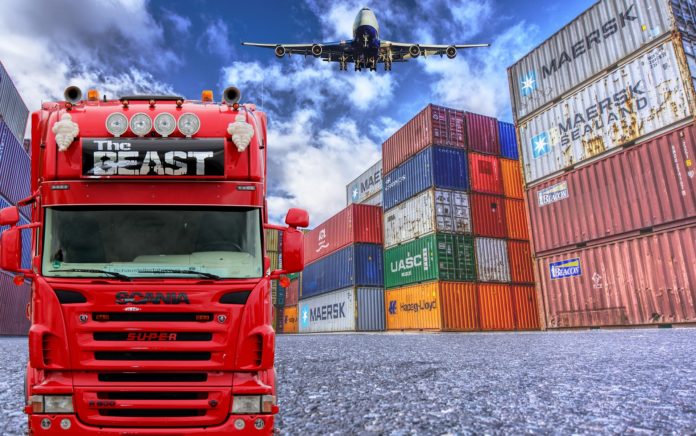We expect our goods to be handled with care and move from the origin to the destination intact without facing any discrepancy, damage, or pilferage. The logistics in the supply chain gain significance when goods are prone to deterioration are highly perishable with less shelf-life. Examples include food products like meat and fish, flowers, pharmaceuticals, and vaccines. The key to an unblemished logistics and supply chain of sensitive goods calls for utmost transparency, visibility and accuracy of the cargo at every stage, that is, the availability of individual (or unit) level tracking of goods and automated sources of information.
Technology can transform the supply chain
In an era of high automation, where services and real-time information require only a touchscreen or a few clicks, manual feeding of information and checking shipment status on the phone or emails looks primitive. It defers the service and customer satisfaction levels required in the food supply chain. From automated systems to augmented reality and the use of big data, machine learning, and artificial intelligence (AI), technological tools have the potential to make the supply chain cheaper, safer, and simpler.

Of great significance in the food supply chain is the use of predictive analytics, with Artificial Intelligence as its foundation. It uses current and historical data, machine learning algorithms, real-time status or performance information, customer or vendor behavior data, market intelligence, the contemporary and social background to make predictions. Predictive analytics is a broad field and an innovative tool with phenomenal scope in every industry. Predictive analytics can be incredibly beneficial for identifying and targeting prospective and highly profitable business opportunities in production optimization and improving operational coherence.
With the help of AI and machine learning, the food supply chain can optimize and shrink the demand and supply gap of food produce and food products by assessing market conditions, channeling warehousing requisites, identifying target consumers, forecasting demand, and rationalizing supply. AI and machine learning together can improve timelines and schedules with instant data processing, and keep fleets running at peak performance levels.
Thus, to reiterate, with machine learning and AI, the food supply chain can benefit from better predictability of customer demand, imminent risks, and disruptions and balance the supply and demand portfolio based on real-time inventory data. By assessing customer preferences and supplier status, it can bring greater visibility across supply chain processes by obtaining and analyzing various sources of data gathered from relevant nodes.
A better understanding of supply chain bottlenecks through increased supply chain visibility, more efficient inventory, working capital, demand, and replenishment planning improves supply chain agility through shortened reaction and order-to-delivery cycle time. Increased visibility and control over tiered networks of suppliers can guide risk management activities and resources to the most critical areas.
Safe food, save food
Food and food products are highly perishable, and one of the biggest concerns is the risk of wastage due to over-produce. The requirement of cold chain warehousing and logistics for the food supply chain is a significant concern in India as the intermodal connectivity, and inter-linked supply chain is still lagging. Artificial Intelligence can be highly useful to plan and strategize the movement and storage of these perishable commodities by assessing the distances between the cold storage warehouses and setting up transportation accordingly. By considering the temperature and sensitivity of goods, food losses can be avoided and revenues optimized.
Machine learning and artificial intelligence in logistics can add value when it comes to the efficiency of supply chains. With the help of these technologies, it is possible to avoid some of the mistakes that humans can make while handling vast sets of data.
Ambrish Kumar is the founder and chief executive officer of Logycode – an eCloud based online platform that facilitates and encompasses pre-requisites of the freight forwarding cycle.
IndiFoodBev — authentic, impactful and influential
An English-language food and beverage processing and packaging industry B2B platform in print and web, IndiFoodBev is in its third year of publication. It is said that the Indian food and beverage industries represent approximately US$ 900 billion in revenues which implies more than 20% of the country’s GDP. Eliminating the wastage on the farmside can help to deliver more protein to a higher number of the population apart from generating sizable exports. The savings in soil, seeds, water, fertilizer, energy and ultimately food and nutrition could be the most immense contribution that country is poised to make to the moderation of climate change.
To improve your marketing and grow sales to the food and beverage processing and packaging industry, talk to us. Our research and consulting company IppStar [www.ippstar.org] can assess your potential and addressable markets in light of the competition. We can discuss marketing, communication, and sales strategies for market entry and growth.
Suppliers and service providers with a strategy and budget for targeted marketing can discuss using our hybrid print, web, video, and social media channels to create brand recognition linked to market relevance. Our technical writers are ready to meet you and your customers for content.
The second largest producer of fruit and vegetables in the world is continuously expanding processing capacities and delivery systems with appropriate innovative technologies. We cover product and consumer trends, nutrition, processing, research, equipment and packaging from farm to thali. Get our 2025 media kit and recalibrate your role in this dynamic market. Enhance your visibility and relevance to existing markets and turn potential customers into conversations. Ask for a sample copy of our bi-monthly in print or our weekly IndiFoodBev eZine each Wednesday.
For editorial info@ippgroup.in — for advertisement ads1@ippgroup.in and for subscriptions subscription@ippgroup.in
Naresh Khanna – 10 February 2025
Subscribe Now












